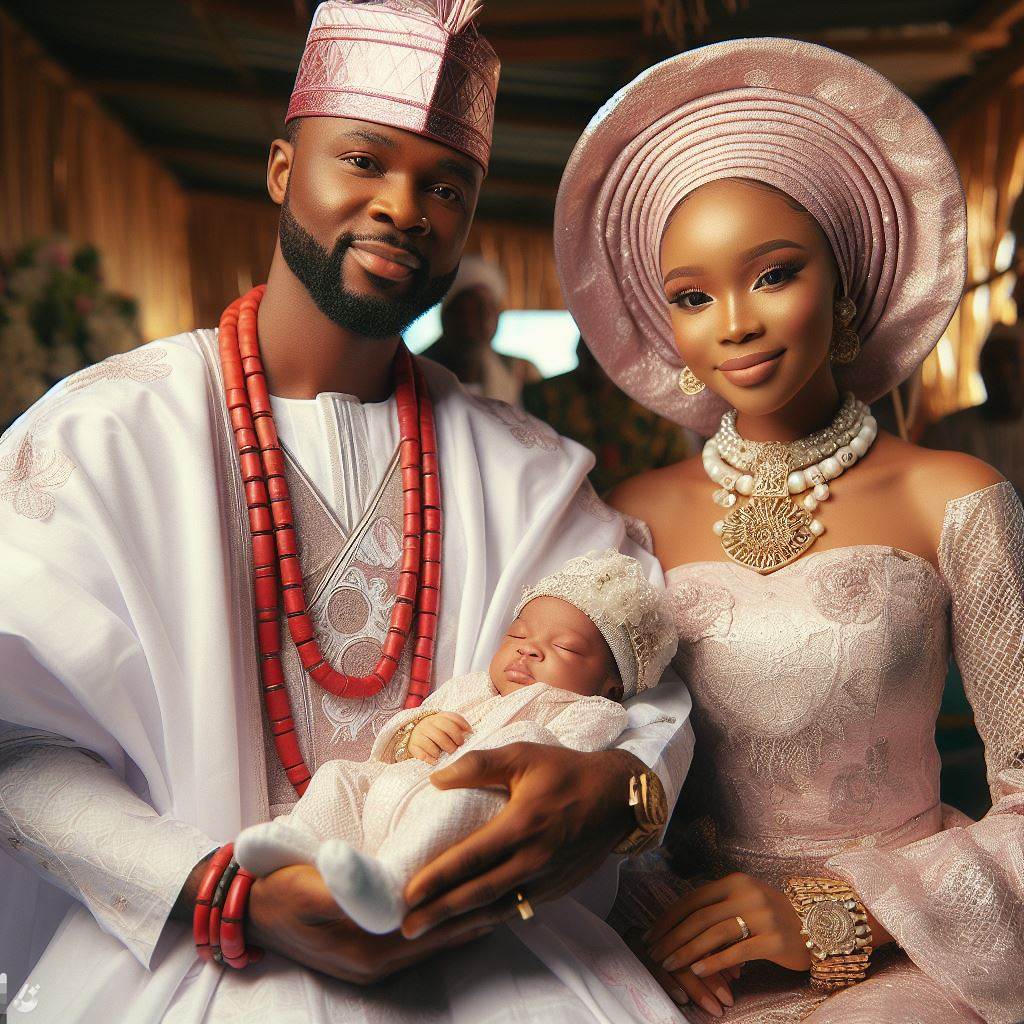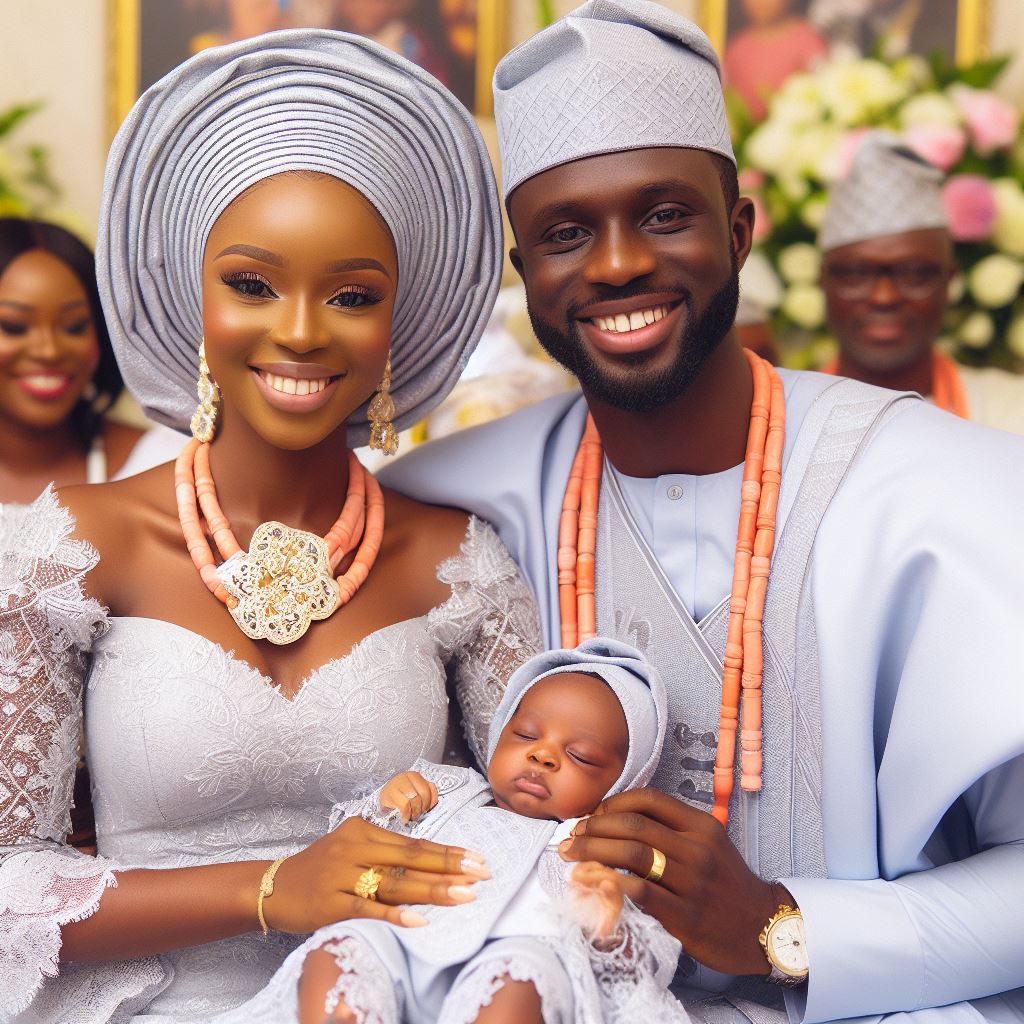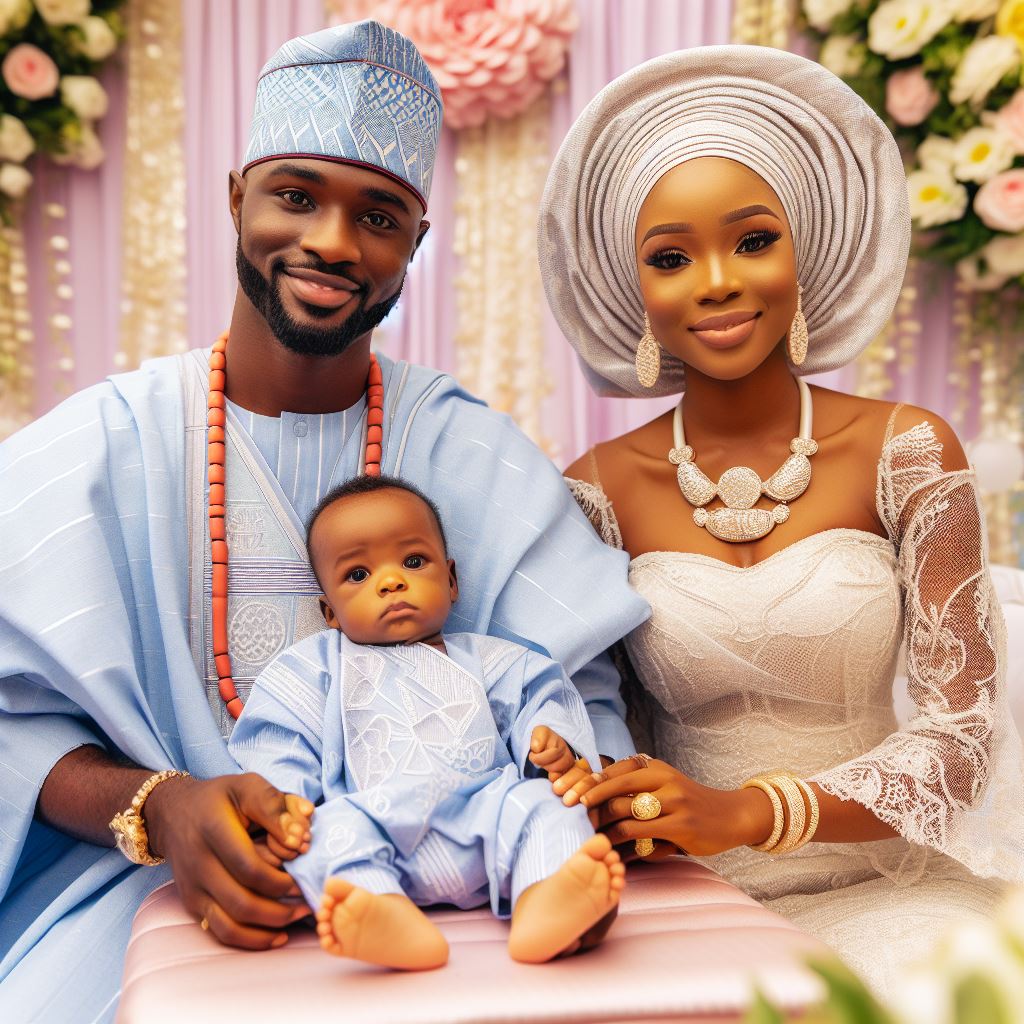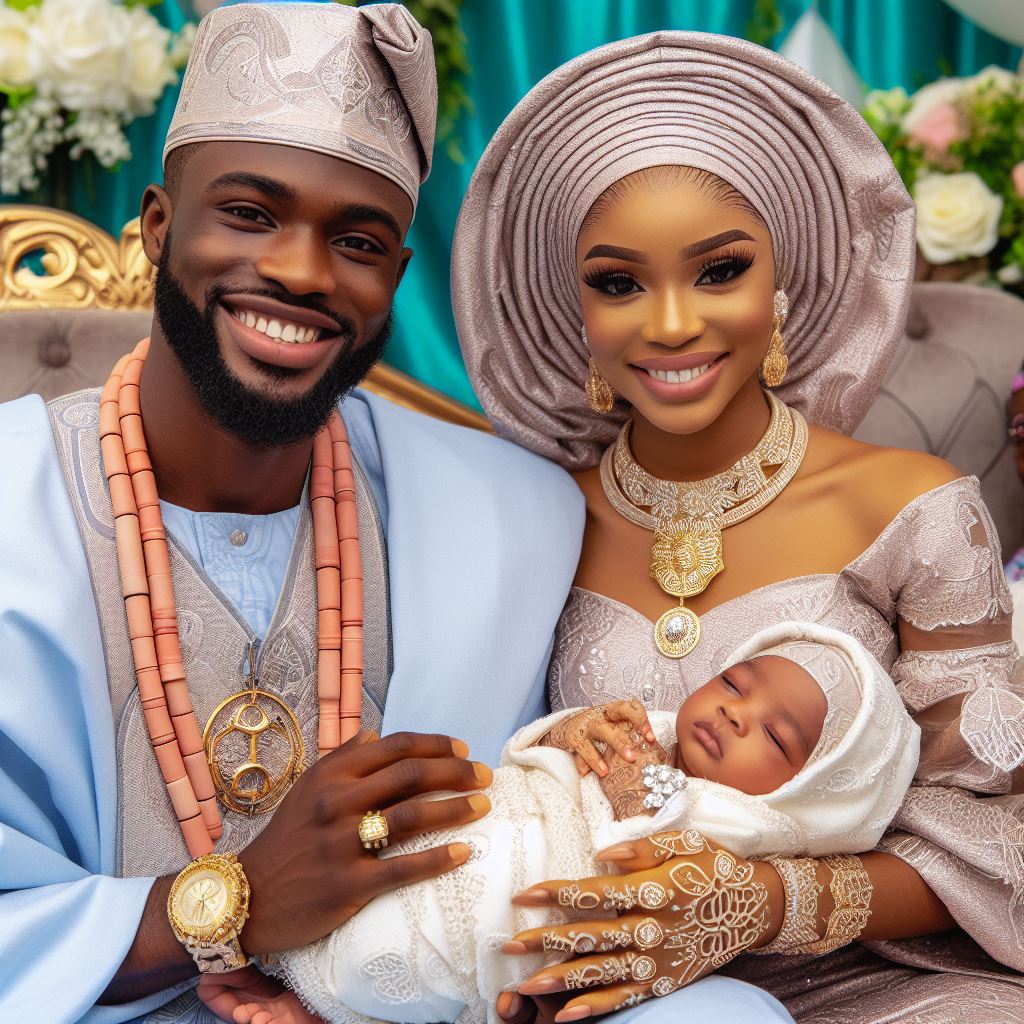Introduction
Brief background on the importance of naming traditions
Naming traditions hold great significance in various cultures around the world. They reflect the values, beliefs, and identity of a community.
In Nigeria, naming traditions are deeply rooted in the cultural heritage of different tribes.
Overview of Nigerian tribes and their distinct naming practices
Nigeria is a diverse country with over 250 tribes, each having its unique naming practices.
The Yoruba tribe, for example, often uses names that symbolize wealth, destiny, or blessings.
On the other hand, the Igbo tribe incorporates elements of religion and spirituality into their naming traditions.
The Hausa tribe emphasizes on Islamic names that reflect the faith and culture of the community.
Additionally, tribes such as the Ibibio, Efik, and Urhobo have their own distinct naming patterns and customs.
These naming practices are more than just a label; they connect individuals to their roots, ancestry, and community.
They foster a sense of belonging and identity among Nigerians, preserving their cultural heritage for generations to come.
In this blog section, we will explore the captivating world of baby naming traditions in Nigerian tribes.
We will delve into the symbolism and meanings behind various names, shedding light on their cultural significance.
Understanding these naming traditions is a key step towards appreciating the rich diversity and traditions within Nigerian communities.
Yoruba Tribe
Significance of names in Yoruba culture
In Yoruba culture, names hold immense importance as they are believed to shape one’s destiny.
Yoruba names are carefully chosen to reflect the family’s aspirations, history, or circumstances.
Names often have deep meanings, portraying qualities like bravery, wisdom, or resilience.
Parenting Made Just for You
Get personalized Parenting Solutions tailored to your child’s needs. Transform your parenting journey with expert guidance in 1-3 days.
Get StartedNaming ceremonies and rituals
Naming ceremonies in Yoruba culture are elaborate and joyous occasions, symbolizing the child’s acceptance.
The ceremony usually takes place eight days after the birth, as the eighth day is considered significant.
During the ceremony, an elder whispers a chosen name into the child’s ear, welcoming them into the family.
Prayers and blessings are offered, and the child’s head is also often shaved as a symbolic gesture.
Naming conventions and meanings
Yoruba names often consist of multiple parts, each having its own significance.
The first name reflects the child’s family, while the second name identifies their own individuality.
Yoruba names derive meaning from proverbs, ancestors, or significant elements in their culture. This meaning shapes names.
For example, “Ade” means “royalty,” “Bolaji” means “to wake with wealth” and “Ayomide” means “my joy has arrived.”
Notable Yoruba names and their significance
Some notable Yoruba names include Olufemi, meaning “God loves me,” and Olamide, meaning “wealth has come.”
Others include Adeola, meaning “crown of wealth,” and Adebisi, meaning “we added to the crown.”
These names reflect the cultural values and aspirations of the Yoruba people.
They serve as a reminder of the rich history, resilience, and pride associated with Yoruba heritage.
Yoruba naming traditions play a vital role in preserving the identity and cultural heritage of the tribe.
They ensure that each child carries their family’s aspirations and values throughout their life.
Unveil the Perfect Name that Tells Your Family's Story
Let us help you find a name that embodies your family's values, traditions, and dreams. Our personalized consultation weaves cultural insights to create a name that's uniquely yours.
Get StartedIn essence, names hold great significance in Yoruba culture, shaping an individual’s destiny and identity.
Naming ceremonies are important occasions that celebrate the child’s acceptance into the family.
Careful selection shapes Yoruba names, deriving deep meanings from proverbs or cultural elements in their essence. These names carry intricate significance.
Notable Yoruba names reflect the tribe’s values, history, and aspirations.
Overall, Yoruba naming traditions are a testament to the tribe’s rich cultural heritage and pride.
Read: The Art of Naming: Nigerian Names Guide
Igbo Tribe
Cultural importance of names in Igbo society
Igbo names hold great significance and are considered an essential part of their cultural identity.
Names are deeply rooted in Igbo traditions and reflect their beliefs, values, and societal norms.
They believe that names have the power to shape an individual’s destiny and influence their character.
The naming ceremony is a significant event in Igbo culture, symbolizing the child’s entry into the community.
Names forge spiritual and ancestral links, binding a child to their heritage and profound connections.
Naming customs and traditions
In Igbo society, families often give names based on birth circumstances or physical attributes of the child.
The first child is usually named after the paternal grandparents, while subsequent children may be named after other relatives.
Twins hold a special place in Igbo culture, and they are given names with meanings that denote their uniqueness.
Names can also be chosen based on significant events, like a successful harvest or a pivotal historical moment.
The naming ceremony involves the gathering of family and friends, who offer prayers and blessings for the child’s future.
Naming patterns and meanings
Igbo names often have profound meanings derived from words, proverbs, or cultural symbols.
For example, the name “Chukwuemeka” means “God has done great things,” symbolizing gratitude and appreciation.
“Nneka” means “Mother is supreme,” exemplifying the high regard for motherhood in Igbo society.
Certain prefixes like “Chi” or “Nwa” are commonly used and hold specific meanings related to spirituality or lineage.
The meanings behind Igbo names often convey virtues, aspirations, or blessings that parents wish for their children.
Unique aspects of Igbo names
Igbo names can be quite lengthy, reflecting the elaborate nature of their language and cultural expressions.
Some names may have multiple components or syllables, each with its own distinct meaning.
The combination of different elements adds depth and richness to the names, making them unique and memorable.
Igbo names can also vary based on gender, with certain names specifically reserved for boys or girls.
As the Igbo society continues to evolve, some modern families may opt for shorter, more contemporary names while still honoring their cultural heritage.
In fact, the Igbo tribe places immense cultural importance on names, as they serve not just as labels but as identifiers of their identity, heritage, and aspirations.
The naming customs, patterns, and meanings of Igbo names reflect the values and beliefs of the society, while also connecting individuals to their ancestral roots.
The uniqueness and depth of Igbo names make them a significant part of their cultural heritage.
Read: Nature-Inspired Names for Nigerian Babies
Hausa Tribe
Naming customs and beliefs among the Hausa people
The Hausa tribe has a rich tradition of naming their children with great significance and meaning.
Names are not chosen randomly but are carefully selected based on various customs and beliefs.
Naming ceremonies and rituals
The Hausa tribe celebrates a new child’s arrival by hosting a naming ceremony to mark the occasion.
This ceremony is a significant event in the community and is attended by close family members and friends.
The child’s parents or a family elder officially reveal and announce the child’s name during the ceremony.
The name chosen is often a reflection of the child’s heritage and is believed to shape their future.
Influences on Hausa names (Islamic, Arabic, etc.)
The influence of Islam and Arabic culture is strongly evident in Hausa naming traditions. Many names have Islamic or Arabic origins and carry religious significance.
This is because the majority of the Hausa people are Muslims, and their religion greatly influences their naming practices.
However, it is not uncommon to find names that have non-Islamic origins as well. Some names are derived from local languages and reflect the cultural diversity of the Hausa tribe.
Symbolism and meanings associated with Hausa names
Hausa names derive deep meanings and symbolism from nature, personalities, or historical events, inspiring their association.
These names reflect connections to nature, personalities, and historical events, fostering rich symbolism.
Each name carries its own unique significance and is believed to have an impact on the individual’s life.
For example, a name like Zainab, meaning “fragrant flower” in Arabic, symbolizes beauty and grace.
Another name, Musa, which means “saved from the water,” signifies a story of survival and strength.
In addition to individual meanings, Hausa names can also reflect family values and aspirations.
Names like Aminatu, meaning “trustworthy,” emphasize the importance of honesty and reliability.
In fact, the Hausa tribe has a deep-rooted tradition of naming their children with great thought and consideration.
These names hold cultural, religious, and symbolic significance, reflecting the values and beliefs of the community.
Through naming ceremonies, the Hausa people celebrate the birth of a child and set the foundation for their future.
Read: Celebrity-Inspired Nigerian Baby Names
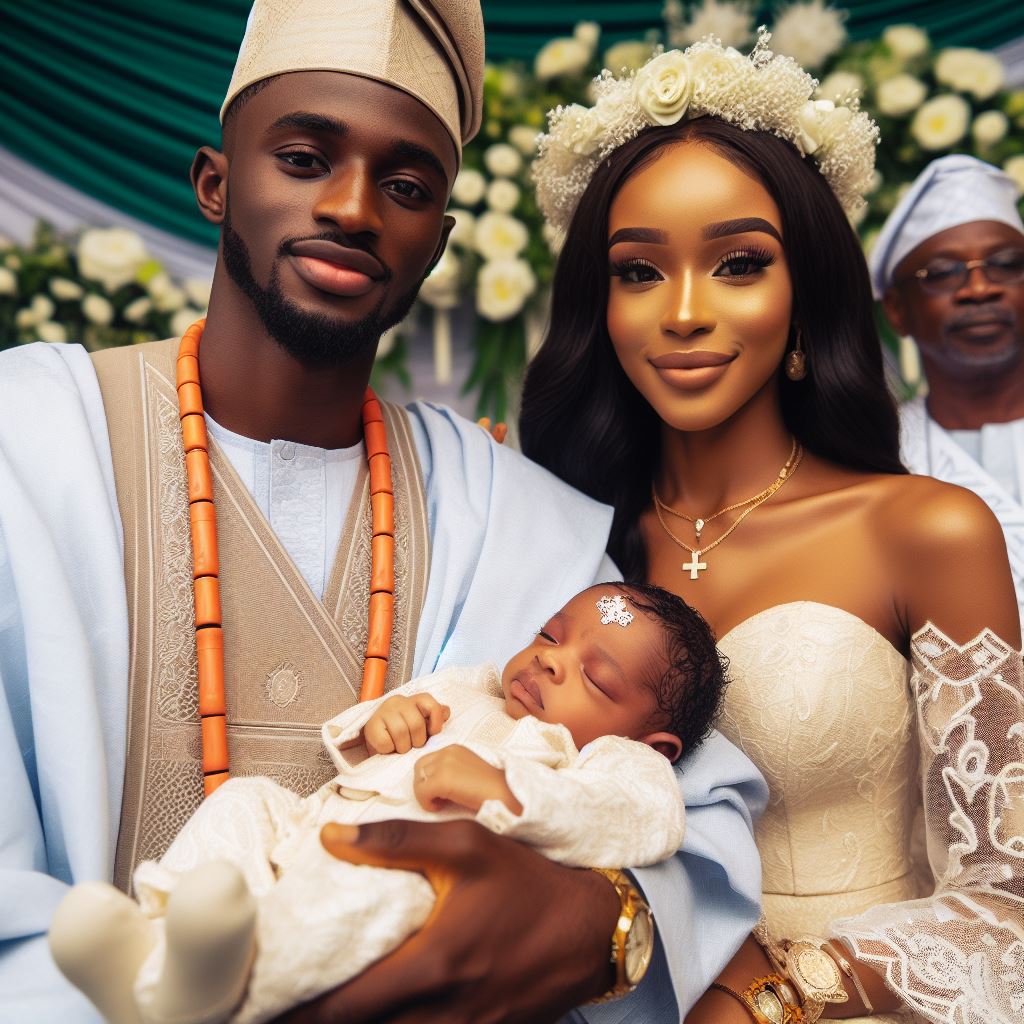
Fulani Tribe
The Fulani tribe, also known as Fulbe or Fulfulde, is one of the largest ethnic groups in Nigeria.
They have a rich cultural heritage and unique naming traditions that reflect their identity and beliefs.
Cultural significance of names in the Fulani community
In the Fulani community, names shape destinies and characters, holding immense importance in personal development.
Choosing a name is deemed crucial as individuals are believed to live up to its meaning. It’s an essential responsibility.
Naming traditions and customs
The Fulani tribe typically gives names based on birth circumstances, timing, or the baby’s traits.
The naming ceremony, called “Siggil,” is a significant event where family and friends gather to celebrate the birth and bestow a name upon the newborn.
Naming patterns and meanings in the Fulani tribe
The Fulani tribe follows specific naming patterns. The father’s family usually suggests the names for boys, while the mother’s family suggests names for girls.
Names often have meanings related to beauty, bravery, intelligence, or desirable virtues.
For instance, the name “Zainab” means beauty, “Bello” means one who is handsome, and “Suleiman” means peace.
These names reflect the values and qualities that the Fulani hold in high regard and hope for their children to embody.
Notable Fulani names and their significance
- Usman: This popular Fulani name means “companion” or “friend” and is associated with leadership qualities and loyalty.
- Aisha: Meaning “alive” or “she who lives,” Aisha is a widely used name among Muslim Fulani families, symbolizing vitality and strength.
- Hassan: Derived from the Arabic word for “good” or “beautiful,” Hassan represents qualities of excellence and virtue.
- Fatima: This name is given to girls and is associated with the Prophet Muhammad’s daughter. It signifies luck, abundance, and happiness.
- Ibrahim: Meaning “father of nations” or “exalted father,” Ibrahim is often given to boys as a symbol of honor, wisdom, and strength.
- Mariam: Derived from the name Mary, Mariam is associated with motherhood, purity, and righteousness.
- Aliyu: This name means “high” or “noble” and is bestowed upon boys to inspire them to strive for greatness.
These notable names illustrate the importance of cultural and religious influences on Fulani naming traditions.
They also represent the aspirations and values that the Fulani people cherish.
In short, the Fulani tribe has a deep cultural significance attached to their naming traditions.
Names carry immense meaning and reflect the aspirations and values of the community.
Understanding the rich and meaningful names of the Fulani people provides insight into their identity and heritage.
Read: Nigerian Baby Names: Tribes & Significance
Other Nigerian Tribes
Brief overview of naming traditions in other Nigerian tribes
- Yoruba: Yoruba names are usually derived from circumstances, events, or characteristics surrounding a child’s birth.
- Igbo: Igbo names are often influenced by religion and have significant meanings related to circumstance or culture.
- Hausa: Hausa names are typically derived from the Arabic language and often reflect Islamic customs and traditions.
Unique aspects and common patterns
In addition to individualistic naming traditions, certain patterns can be observed across Nigerian tribes:
- Several tribes use names that are gender-specific, indicating whether a child is a boy or a girl.
- Many names have a spiritual or religious significance, reflecting the close connection between culture and spirituality in Nigerian society.
- Some tribes utilize names that denote social status or the order of birth within a family.
Notable names from various tribes
Yoruba names
- Adebayo – “crown meets joy,” a common name given to a child born during a period of happiness.
- Oluwatoyin – “God is worthy of praise,” a name typically given to express gratitude to God.
- Funmilayo – “give me joy,” often given to celebrate the birth of a child who brings joy to the family.
Igbo names
- Chukwudi – “God is alive,” a name commonly given to express faith and affirm the presence of God.
- Uzoamaka – “the road is good,” a name often given to signify a positive journey or successful path.
- Nkechi – “what God gave,” a name indicating appreciation and gratitude for God’s blessings.
Hausa names
- Abdullahi – “servant of Allah,” a common name that signifies a strong Islamic faith.
- Aisha – “alive,” a name associated with Prophet Muhammad’s wife and popular among Muslim families.
- Umar – “long-lived,” a name often given to wish a child a long and prosperous life.
In general, Nigerian tribes have diverse and unique naming traditions influenced by religious, cultural, and historical factors.
Names carry deep meanings and reflect various aspects of a child’s birth, family values, and societal norms.
Evolution of Nigerian Naming Traditions
The influence of modernization and globalization
- The fast-paced changes brought by modernization and globalization have had a profound impact on Nigerian naming traditions.
- Increased exposure to foreign cultures and ideas has led to a blending of traditional Nigerian names with modern influences.
- Parents now consider names that reflect global trends or have connections to popular cultures, such as English names or names from movies and TV shows.
- This fusion of traditional and modern elements demonstrates the adaptability of Nigerian naming traditions.
- The influence of social media and the internet has also played a role in the evolution of naming practices, as parents seek inspiration from online sources.
Shifts and adaptations in naming practices over time
The naming traditions of Nigerian tribes have not remained static but have undergone significant shifts and adaptations over time.
Names in Nigerian tribes bore symbolic meanings, derived from events or qualities, reflecting their deep significance historically.
However, with the passage of time, some of these traditional practices have become less common.
In urban areas, the influence of Western naming practices and the desire for uniqueness have resulted in more diverse naming choices.
Cultural preservation and the importance of honoring traditions
Despite the changes and adaptations, cultural preservation remains crucial in Nigerian naming traditions.
Many parents continue to uphold the significance of names in their respective tribes and strive to pass on these traditions to future generations.
By naming their children after important ancestors or using names with traditional meanings, Nigerian parents maintain a connection to their cultural heritage.
The act of honoring traditions through naming also carries a sense of pride and identity, allowing Nigerians to celebrate their cultural roots.
Furthermore, naming ceremonies, where extended family members and community members come together, provide opportunities to reinforce cultural values and beliefs.
In review, Nigerian naming traditions have evolved and adapted over time under the influence of modernization and globalization.
The fusion of traditional and modern elements, as well as the shift towards diverse naming choices, highlights the flexibility of Nigerian naming practices.
However, amidst these changes, cultural preservation and the honoring of traditions remain significant.
By upholding the symbolic meanings of names and celebrating cultural heritage, Nigerians continue to pass down their traditions to future generations and maintain a sense of pride and identity.
Conclusion
Nigerian tribes have a wide variety of naming traditions, each with its own significance.
These traditions reflect the cultural diversity and rich heritage of the Nigerian people.
It is important for individuals to embrace and appreciate these customs, as they play a crucial role in maintaining the cultural identity of Nigerian tribes.
Names hold deep meaning in Nigerian culture, representing personal characteristics, family history, and even religious beliefs.
They are a way to connect individuals to their roots and honor their ancestors.
Therefore, it is vital to understand and respect the importance of names in Nigerian culture and society.
By valuing and preserving these naming traditions, we can contribute to the preservation of Nigerian cultural identity and promote a more inclusive society.
Let us celebrate the diversity of Nigerian names and the beauty they bring to our lives.
Together, we can embrace and appreciate the rich tapestry of Nigerian naming traditions, ensuring their survival for future generations.
Join us in recognizing the power and significance of names in Nigerian culture!

